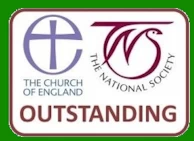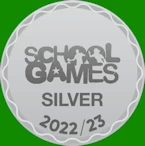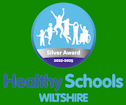Computing
Intent
At Woodford Valley, we recognise how widely technology is used by pupils both in and out of school and the impact is has on their lives and learning. Computing competence is a huge factor in enabling children to be confident, creative and independent learners. Our broad computing curriculum encompasses the three pillars of computer science, information technology and digital literacy that is progressive and builds upon key stage end points. It is balanced with opportunities for pupils to creatively apply and embed their knowledge and skills in order to support and enhance learning in other subjects. Our curriculum fulfils the requirements of the National Curriculum. Through the key stages, children are provided with opportunities to use a range of technological devices and tools, in addition to unplugged activities. We want our pupils to understand that there is always a choice with using technology and hope by Upper Key Stage 2, children will have the independence and confidence to choose the best tool to fulfil the task.
Implementation
Our Computing curriculum covers the 3 pillars of progression of the national curriculum:
Lessons provide scope for new learning as well as building on prior knowledge to engage all children in their learning. These lessons are taught using the NCCE computing scheme; adaptations are made when considering the skills and needs of a cohort. These units include Computing Systems and Networks, Creating Media A, Programming A, Data and Information, Creating Media B and Programming B.
Staff make links across the curriculum wherever possible so that the tasks are meaningful and purposeful to the children.
For Digital Literacy, we use the Project Evolve toolkit, covering the areas of Self-image & Identity, Copyright & Ownership, Health, Well-being & Lifestyle, Online Relationships, Online Bullying and Privacy & Security. Each unit is taught within the same term across the school. In the Early Years, the Project Evolve units have been selected to meet the developmental needs of the children.
In addition, the school celebrates Safer Internet Day annually, making sure that it has a high profile to keep children safe when working online. We revisit this throughout the year to ensure that it remains prominent to all.
A range of formative assessments are used by teachers to support learners and to inform the pace and future sequence of lessons. Learners are encouraged to reflect on their own learning through self-assessment techniques.
Regular opportunities for staff CPD are planned so that teachers feel confident in delivering the curriculum to their classes. Staff access the ‘Getting Started’ training linked to the NCCE computing scheme for their particular year group. This in turn means that children are benefiting from high quality teaching, resulting in high standards.
Impact
Children at Woodford Valley are confident, creative users of technology. They have high levels of digital literacy and can articulate their learning in many ways, including discussions, practical knowledge and demonstrating a love and interest in computing. They see technology as a way of communicating to the world around them in a safe way that enables them to promote their love of learning across the curriculum.
Safer Internet Day – Tuesday 6th February 2024
Safer Internet Day 2024 took place on the 6th of February 2024. During the week, classes revisited their esafety rules (these are on our class webpages) and began to explore this year’s theme of Inspiring change? Making a difference, managing influence and navigating change online’
Internet Matters is a resource for both younger and older children https://www.internetmatters.org/resources/online-safety-guide-0-5-year-olds/
Useful one page leaflet for parents with under 5’s: https://pwxp5srs168nsac2n3fnjyaa-wpengine.netdna-ssl.com/wp-content/uploads/2019/04/Internet-Matters-Guide-Online-safety-for-parents-of-children-0-5-years-old.pdf
NSPCC leaflet for parents of 8-12 year olds https://learning.nspcc.org.uk/media/1489/share-aware-parents-guide.pdf
More information and resources about safer internet day for parents and carers can be found here: www.saferinternet.org.uk/safer-internet-day/safer-internet-day-2024/top-tips-for-parents-and-carers
This free online safety guide highlights some of the key points from Ofcom’s 2023 Media Use and Attitudes report. It outlines statistics and trends such as the current most popular platforms for young people and the proportion of children in each age group who play online games.
| Cookie | Duration | Description |
|---|---|---|
| cookielawinfo-checkbox-analytics | 11 months | This cookie is set by GDPR Cookie Consent plugin. The cookie is used to store the user consent for the cookies in the category "Analytics". |
| cookielawinfo-checkbox-functional | 11 months | The cookie is set by GDPR cookie consent to record the user consent for the cookies in the category "Functional". |
| cookielawinfo-checkbox-necessary | 11 months | This cookie is set by GDPR Cookie Consent plugin. The cookies is used to store the user consent for the cookies in the category "Necessary". |
| cookielawinfo-checkbox-others | 11 months | This cookie is set by GDPR Cookie Consent plugin. The cookie is used to store the user consent for the cookies in the category "Other. |
| cookielawinfo-checkbox-performance | 11 months | This cookie is set by GDPR Cookie Consent plugin. The cookie is used to store the user consent for the cookies in the category "Performance". |
| viewed_cookie_policy | 11 months | The cookie is set by the GDPR Cookie Consent plugin and is used to store whether or not user has consented to the use of cookies. It does not store any personal data. |
Woodford Valley C.E. Primary Academy
Middle Woodford, Salisbury
SP4 6NR
Telephone: 01722 782361
Email: office@woodfordvalley.wilts.sch.uk


